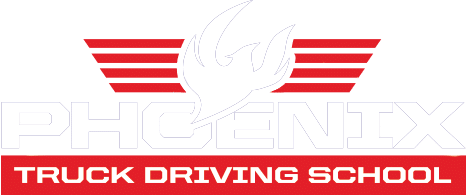Efficiency is one of the most crucial qualities of a good truck driver. Not only is it important to your company and customers receiving the freight, but it also allows you to drive more miles and earn more money. Trucking trip planning is the first step toward successful delivery. Being prepared before you set out on the highway will help you avoid obstacles and stay on schedule.
The Importance of Trip Planning
Trip planning can be the difference between a good truck driver and a great one.
Some of the benefits of a well-planned trip are:
- Lower stress levels and better sleep
- Saving time and making more money per trip
- Establishing a good reputation with customers and dispatchers
Trip planning is also important because it helps you avoid the consequences of poor trip management.
Some of these may include:
- Running out of fuel
- Ending up in an unknown or unsafe area
- Delivering late cargo to a customer
Tips For Effective Trip Planning
The more you practice trip planning, the more effective it will be. Figuring out what planning strategies work the best for you will make you a more organized employee.
Five tips that can help you trip plan effectively:
Use Multiple Resources
While many trucks are equipped with satellite navigation systems, it is helpful to have other options available to give you directions. You can also check state Department of Transportation (DOT) sites for updates on road construction, weather, and other potential delays.
Most trucks also carry a road atlas for areas with no phone service as well. Make sure you get a trucker’s atlas since the standard options may not label restricted roads.
Know Where to Fuel Up
Keeping your truck properly fueled is essential for long-haul trucking. Looking up gas stations along your route beforehand can ensure that you don’t run out of gas. Gas prices vary widely from state to state, so planning to fill up in a less expensive area can also save you money in the long run.
In addition to knowing where to fuel up, it is necessary to locate other essential resources along your route. These include repair and tire shops, as well as truck stops, hospitals, and places to stop for a meal.
Plan Out Your Breaks
The fewer stops you make during a delivery, the faster you get to your destination and the more you get paid. Setting a goal for how many stops you can realistically make in a day can help maximize your driving time. Plan out bathroom, fuel, meal, and rest stop breaks ahead of time.
Have a Back-Up Plan
You should always hope for the best, but plan for the worst. Trips don’t always go as anticipated, so being ready for unexpected situations to arise can better prepare you to deal with them. Having a backup travel plan for your stops, especially rest stops, will save you the stress of trying to find a new location if your first option is at capacity.
Keep Communication Open
No matter what type of route you have, communication is the key to a safe and successful trip. Your fellow drivers are a great resource for any questions you may have along the way. Updating your dispatcher and customers often on your estimated time of arrival (ETA) is also an important part of open communication and can boost your reputation.
Start Your Trucking Journey Today
If a career in truck driving sounds like a good fit for you, get started at Phoenix Truck Driving School. Our commercial driver’s license (CDL) program can be completed in a month’s time at our locations in Arizona, New Mexico, and Texas.



